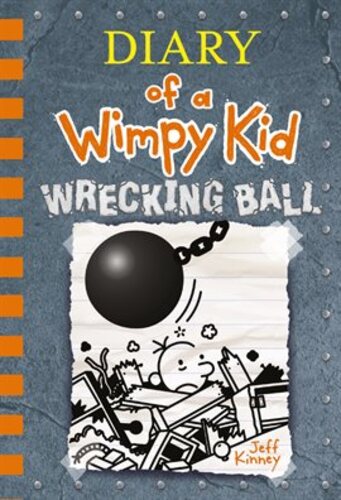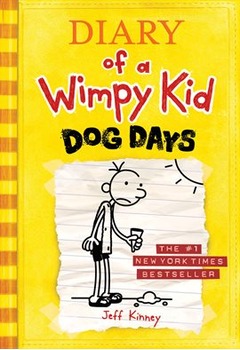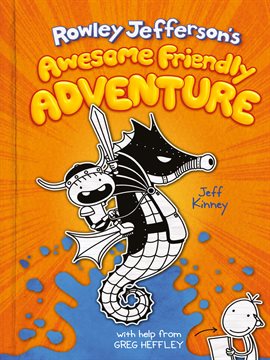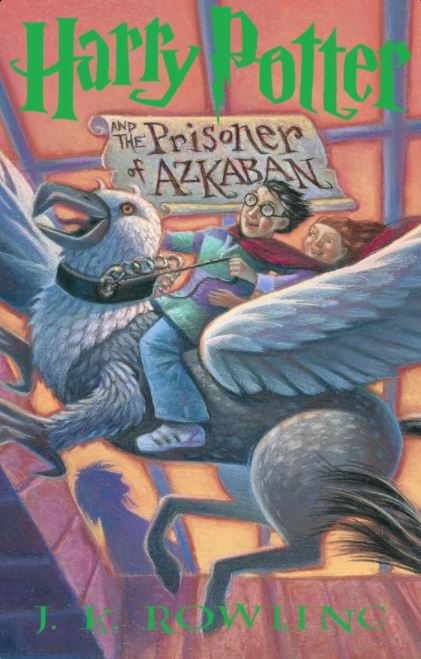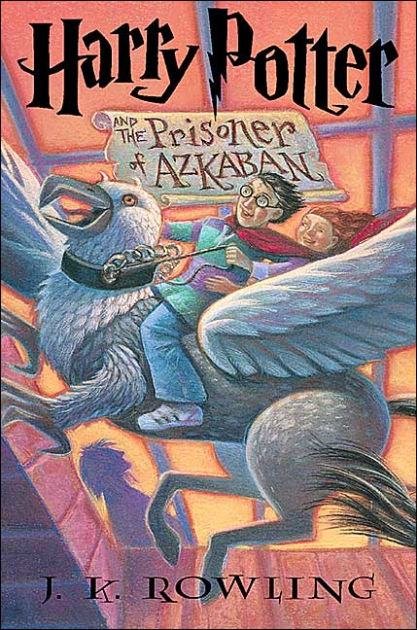
Harry Potter and Prisoner of Azkaban by J.K.Rowling
Introduction
In Big Shot, book 16 of the Diary of a Wimpy Kid series from #1 international bestselling author Jeff Kinney, Greg Heffley and sports just don’t mix. After a disastrous field day competition at school, Greg decides that when it comes to his athletic career, he’s officially retired. But after his mom urges him to give sports one more chance, he reluctantly agrees to sign up for basketball. Tryouts are a mess, and Greg is sure he won’t make the cut. But he unexpectedly lands a spot on the worst team. As Greg and his new teammates start the season, their chances of winning even a single game look slim. But in sports, anything can happen. When everything is on the line and the ball is in Greg’s hands, will he rise to the occasion? Or will he blow his big shot?
About This Book
For twelve long years, the dread fortress of Azkaban held an infamous prisoner named Sirius Black. Convicted of killing thirteen people with a single curse, he was said to be a dedicated follower of the Dark Lord, Voldemort. Now he’s escaped. And the Azkaban guards heard Black muttering in his sleep, “He’s at Hogwarts . . . he’s at Hogwarts.” Is he coming for Harry? Harry Potter isn’t safe, not even within the walls of his magical school, surrounded by his friends. Because on top of it all, there may be a traitor in their midst.
Book Club Questions
- How many of you just read the book for the first time? How many of you are rereading the Harry Potter series?
- Why do you think J.K. Rowling depicts the Dursleys as being so terrible?
- What are the advantages to Harry not having known how special he is before he starts school? Disadvantages? What are some of the instances when Harry acts more like a bumbling Muggle than a great wizard?
- What are your first impressions of Hogwarts School? What about it makes it seem special and different?
- The title of each of the chapters provides some clues as to what will occur in each. Do the titles tell the whole truth? How do they reveal some of the more symbolic meaning of the story?
- Sometimes, the very qualities that seem to make a person disagreeable to you, as Hermione was to Harry and his friends at first, become assets to you once that person becomes you friend. What qualities did Hermione bring to the group? What does her integration into the group tell you about the nature of friendship? Why did defeating the troll turn Harry, Ron, and Hermione into best friends?
- In Chapter Nine, Harry disobeys a direct order from one of the teachers at the Hogwarts School and takes off on a broom. This infraction is normally cause for expulsion from the school. However, in Harry’s case, it brings him the honor of being chosen as the “Seeker” for his Quidditch team. Can you find other instances in the story where Harry’s actions lead to quite opposite results from what is expected?. To what extent is the book’s plot advanced by such surprise turns of events? How much unpredictability would be too much?
- The Mirror of Erised (Desire) plays an important role in the Harry’s growing understanding of his internal conflict. The inscription around the top of the mirror translates: “I show not your face but your heart’s desire.” When Harry gazes into the mirror he sees his parents and other members of his family. Dumbledore, the headmaster of the school, cautions Harry, saying that the mirror “will give neither knowledge nor truth. Men have wasted away before it, entranced by what they have seen, or been driven mad, not knowing if what it shows is real or even possible,” and he concludes by saying, “It does not do to dwell on dreams and forget to live.”. Harry longs for the connection to his family, something missing from his miserable childhood. How does he eventually make that connection to the past without losing sight of what is important in the present and essential to the future?
- The young heroes have to face their greatest challenges without any support from adults until the last few pages. Discuss how Rowling uses these elements to build excitement and make this book a compelling page-turner.
- Quirrell tells Harry that “There is no good and evil, there is only power, and those too weak to seek it.” Do you agree with this? Is this the reality of the world? Or if good and evil do exist, what makes them so? Which is more important in the world, power, or good and evil?
- Besides Harry Potter himself, who was your favorite character in the book? Or which character did you find most interesting? Why? What details did Rowling provide that made that character come alive in your mind in all his or her complexity? Did you learn more about the character from their words, their appearance, or their actions? Did your first impressions of the character remain unaltered, or did you change your opinion of the character as the story went on? Do any of the characters remind you of someone you know?
- The author has more than a little bit of fun with names in this story. For example, the Professor of Herbology is Professor Sprout, and even the authors of the textbooks Harry must study are puns and riddles. Can you find other examples of this wordplay and show how the names reflect the characteristics of their owners? What about names that are the opposite of what you’d expect? — for example, the huge, terrifying three-headed dog named Fluffy? What effect do you think the author achieves with this name?
- If you could have one magic companion, what would it be and why? (Rat, cat, owl, dragon, unicorn . . . ?)
- Many novels of high fantasy borrow from the traditional stories of fairy tales, myths, and legends. The dog Fluffy which guards the trapdoor at Hogwarts School resembles Cerberus, the three-headed dog which guards the underworld of Greek mythology. What other creatures from traditional tales are paralleled in the story? How does each of these creatures play a pivotal role in advancing the plot?
- Consider the professors at Hogwarts, including Dumbledore, McGonagall, and Quirrell – what does each character stand for? What does Harry learn from each one?
- The Harry Potter series is the most popular children’s book series ever written. Why do you think it is so popular? Why do you think adults and kids both like it?
- Do you have any questions or additional comments?
Fictionary Questions
- Which characters did you like best? Which did you like least?
- Which character did you relate to, or empathize with, the most?
- If you had to trade places with one character, who would it be?
- Guess the characters’ zodiac signs.
- What do you think happens to the characters after the book’s official ending?
- What are your thoughts on the book’s structure? Did it serve the story well?
- How did the setting impact the story? Would you want to read more books set in that world?
- Did the book feel real to you?
- Did the plot proceed in a way that felt natural? Or did you feel manipulated by the storyline?
- Are there any characters you’d like to deliver a lecture to? If so, who? What would you say?


